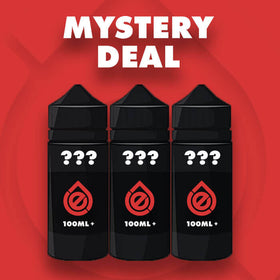
UPS to Stop Delivering Vaping Products
UPS has announced that it will stop transporting vaping products and has begun closing the vaping companies' accounts. The shipping giant will also not deliver any vaping products to homes from April 5, 2021.
The announcement comes after the 'vape mail ban' was passed by Congress. This recently passed bill bans all shipment of vaping products by the US Postal Service and demands that all private delivery services check I.D.s and obtain adults' signatures at all delivery points.
In December 2020, Congress approved the "Preventing Online Sales of E-Cigarettes to Children Act." Some private delivery services have decided to stop shipping all vaping products. Delivery companies are choosing to back out due to the new law's complexity and added expenses it will incur.
UPS and FedEx are two notable shipping companies that will stop transporting vaping products. FedEx will officially stop shipping vaping products from March 1. DHL has previously banned all shipments of e-cigarettes and all products containing nicotine within the U.S.
"USP will not transport vaping products to, from, or within the United States due to the increased complexity to ship those products," a USP spokesperson said in a Vaping360 interview.
The new law is causing problems for many companies in the rapidly growing vaping industry. Vaping is a big business, and there are many big players involved. Although it has been hailed as a safer and healthier alternative to smoking cigarettes, many have concerns about vaping. Governments worldwide have begun enacting laws to regulate the sale and use of vaping products, especially young people. In the U.S., there is concern about the school going children vaping. The new bill aims to limit teen access to vaping products by restricting the sale of vaping products online.
"The inclusion of these critical protections against the online sales of e-cigarettes to children will prevent countless illnesses and save lives," Congresswoman Rosa DeLauro said.
"This bill's enactment will mark the end of a battle I have fought to close the loophole that allows online e-cigarette vendors to sell to customers without verifying their age at the point of delivery. This is another critical step to ending the youth vaping epidemic, one of my challenges worsened by the spread of COVID-19," she added.
The newly enacted law will significantly impact consumers of vaping products because soon, there will be no notable delivery service willing to transport vaping products. Another developing challenge is the requirement of signatures at the point of delivery. Most deliveries for vaping products occur during business hours when the majority of adults are at work or not home.
The new law, which is part of the Omnibus Spending Bill, mandates the U.S. Postal Service to create rules banning the U.S. Mail delivery of vaping products within 120 days. The law states that all vaping products, whether they contain nicotine or not. The bill is broad and includes different vaping products like CBD, cannabis, devices, and flavor-only e-liquids.
The U.S. Postal Service is yet to announce its new rules concerning vaping products. According to the current USPS rules, manufacturers and distributors can ship smokeless tobacco and cigarettes to each other, not directly to consumers. If these regulations still apply, it is USPS will still ship to vape shops, but not to customers at home.
Besides banning USPS deliveries of vaping products, the new law also forces sellers of vaping products to join the Prevent All Cigarette Trafficking (PACT) Act. The PACT Act has a lengthy list of requirements that all shippers must comply with. Some conditions of the PACT Act are
. Registering with the U.S. Attorney General/ATF
. Verify the age of customers using a commercially available database
. Use private shipping services that collect adult signature at the point of delivery.
.If selling in states that tax vaping products, sellers must register at the point of delivery
.If sellers in states that tax vaping products, sellers must register with the federal government and with the tobacco tax administrators o the states.
Many have said the new regulations targeting vaping products would also have a significant impact on the hemp businesses. The bill's broad nature also ensures that hemp businesses must comply with the stipulations in the Prevent Online Sales E-Cigarettes to Children Act and The PACT Act.
"The law, to be clear, doesn't call out or even target the hemp industry. However, to the extent that they are participants in the industry who are selling vape products, then it absolutely affects them, said Rod Kight, a cannabis attorney in Asheville, North Carolina.
Many big vaping companies are looking at solutions and exploring options of private shipping companies and expensive software to help comply with the PACT Act requirements. However, small vaping companies and retailers will find it hard to survive under the new regulations.
The announcement comes after the 'vape mail ban' was passed by Congress. This recently passed bill bans all shipment of vaping products by the US Postal Service and demands that all private delivery services check I.D.s and obtain adults' signatures at all delivery points.
In December 2020, Congress approved the "Preventing Online Sales of E-Cigarettes to Children Act." Some private delivery services have decided to stop shipping all vaping products. Delivery companies are choosing to back out due to the new law's complexity and added expenses it will incur.
UPS and FedEx are two notable shipping companies that will stop transporting vaping products. FedEx will officially stop shipping vaping products from March 1. DHL has previously banned all shipments of e-cigarettes and all products containing nicotine within the U.S.
"USP will not transport vaping products to, from, or within the United States due to the increased complexity to ship those products," a USP spokesperson said in a Vaping360 interview.
The new law is causing problems for many companies in the rapidly growing vaping industry. Vaping is a big business, and there are many big players involved. Although it has been hailed as a safer and healthier alternative to smoking cigarettes, many have concerns about vaping. Governments worldwide have begun enacting laws to regulate the sale and use of vaping products, especially young people. In the U.S., there is concern about the school going children vaping. The new bill aims to limit teen access to vaping products by restricting the sale of vaping products online.
"The inclusion of these critical protections against the online sales of e-cigarettes to children will prevent countless illnesses and save lives," Congresswoman Rosa DeLauro said.
"This bill's enactment will mark the end of a battle I have fought to close the loophole that allows online e-cigarette vendors to sell to customers without verifying their age at the point of delivery. This is another critical step to ending the youth vaping epidemic, one of my challenges worsened by the spread of COVID-19," she added.
The newly enacted law will significantly impact consumers of vaping products because soon, there will be no notable delivery service willing to transport vaping products. Another developing challenge is the requirement of signatures at the point of delivery. Most deliveries for vaping products occur during business hours when the majority of adults are at work or not home.
The new law, which is part of the Omnibus Spending Bill, mandates the U.S. Postal Service to create rules banning the U.S. Mail delivery of vaping products within 120 days. The law states that all vaping products, whether they contain nicotine or not. The bill is broad and includes different vaping products like CBD, cannabis, devices, and flavor-only e-liquids.
The U.S. Postal Service is yet to announce its new rules concerning vaping products. According to the current USPS rules, manufacturers and distributors can ship smokeless tobacco and cigarettes to each other, not directly to consumers. If these regulations still apply, it is USPS will still ship to vape shops, but not to customers at home.
Besides banning USPS deliveries of vaping products, the new law also forces sellers of vaping products to join the Prevent All Cigarette Trafficking (PACT) Act. The PACT Act has a lengthy list of requirements that all shippers must comply with. Some conditions of the PACT Act are
. Registering with the U.S. Attorney General/ATF
. Verify the age of customers using a commercially available database
. Use private shipping services that collect adult signature at the point of delivery.
.If selling in states that tax vaping products, sellers must register at the point of delivery
.If sellers in states that tax vaping products, sellers must register with the federal government and with the tobacco tax administrators o the states.
Many have said the new regulations targeting vaping products would also have a significant impact on the hemp businesses. The bill's broad nature also ensures that hemp businesses must comply with the stipulations in the Prevent Online Sales E-Cigarettes to Children Act and The PACT Act.
"The law, to be clear, doesn't call out or even target the hemp industry. However, to the extent that they are participants in the industry who are selling vape products, then it absolutely affects them, said Rod Kight, a cannabis attorney in Asheville, North Carolina.
Many big vaping companies are looking at solutions and exploring options of private shipping companies and expensive software to help comply with the PACT Act requirements. However, small vaping companies and retailers will find it hard to survive under the new regulations.

